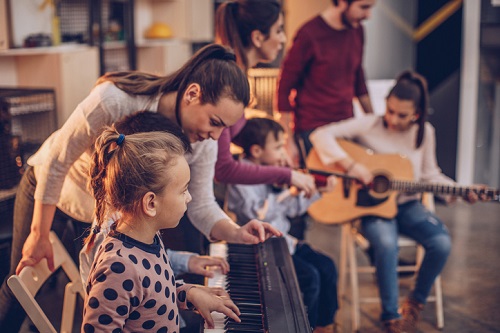
A growing body of research shows that music education not only improves student wellbeing but can boost their academic outcomes as well.
Longer attention span, emotional stability, resilience and cognitive capacity are just a few of the outcomes realised from students who learn to play an instrument and actively engage in this type of education.
However, around 23% of schools in Australia offer no music programs – a gaping void that many music education companies are eager to fill.
Last week, Music: Count Us In (MCUI) – Australia’s largest school music advocacy and participation program – had its funding extended by the Federal Government to 2019, providing it with a further $450,000 for the year ahead.
The program, delivered by national umbrella body Music Australia, is helping over 745,000 students across the country participate in music education by providing resources and skills development opportunities for teachers.
MCUI’s campaign manager, Jim Finn, said that the funding announcement by Federal Education Minister, Dan Tehan, ensures that thousands of schools will have access to a meaningful music education program this year.
“MCUI is the only fully vocal based national singing program. It requires no prior learning or skills,” Finn told The Educator.
“It is easily accessible and adaptable to all students as well as to any teacher, regardless of any musical training they may have. It is also 100% free to all teachers across Australia.”
Finn said that while the academic and social benefits of a good music education are clear, the most important thing music education brings is a joy, love and appreciation of music.
“We shouldn’t have to judge the benefits of music education by how it contributes to success in other aspects of schooling. Music Education on its own is as important, if not MORE important than Mathematics, English and Science,” he said.
Finn said MCUI be working with the Sydney Symphony Orchestra again for an end-of-year orchestral performance of the Program Song.
“We will also be looking for another young composer to create a special orchestral arrangement of the song,” he said.
“2019 is also set to be the biggest year in the history of the program. Last year we saw 745,000 students around Australia sing together on Celebration Day. This year we’re expecting even more.”


